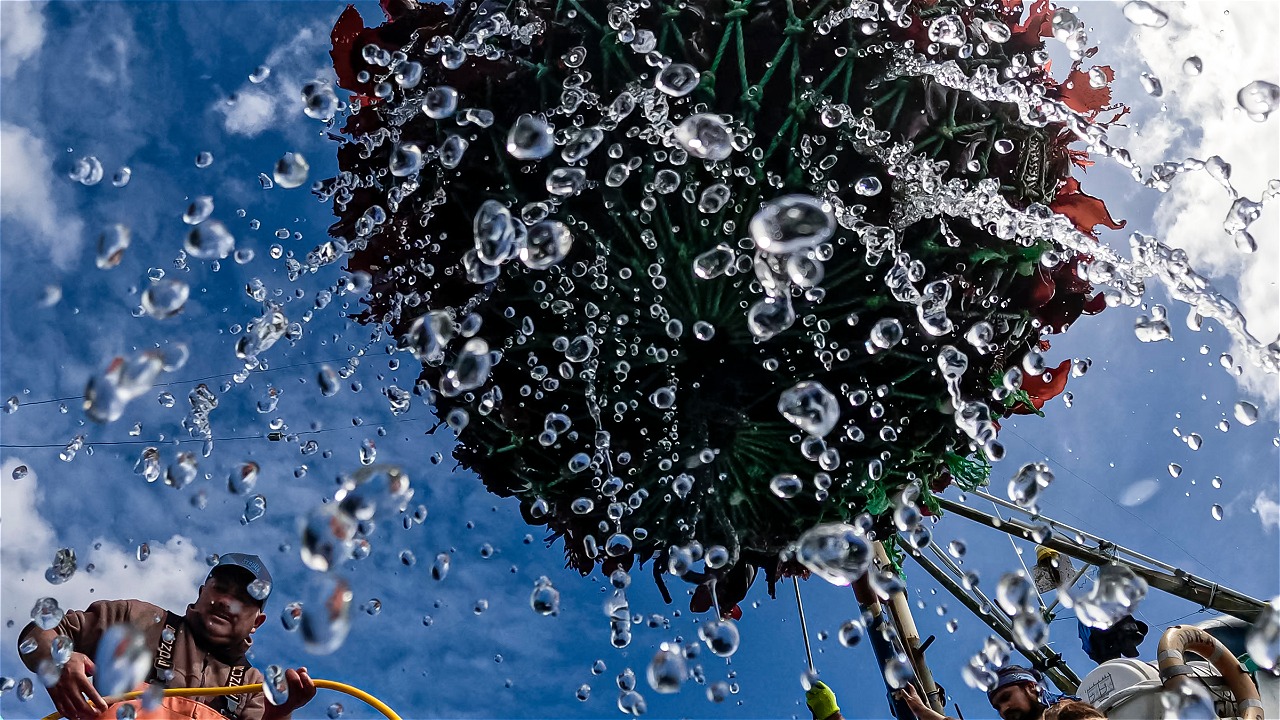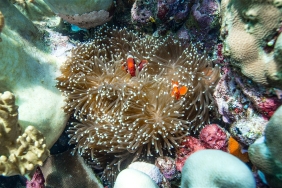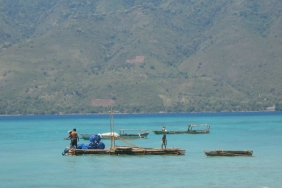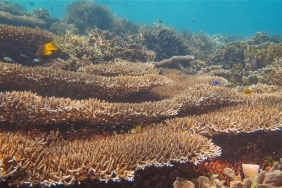START OF IMPLEMENTATION OF ECOSYSTEM APPROACH TO FISHERIES MANAGEMENT (EAFM) IN INDONESIAN
According to United Nations Food and Agricultural Organization (FAO, 2003), EAFM is an approach to fisheries management that strives to balance diverse societal objectives, by taking into account the knowledge and uncertainties of biotic, abiotic, and human resources as ecosystem components and their interactions, and applying an integrated approach to fisheries within meaningful ecological boundaries. Implementation of this approach in Indonesia is very important as one of key referencesof fisheries management toward sustainable fisheries for human prosperity.
Throughout the years, fisheries management and practices in Indonesia focuses mainly on the development of fishing capacities and productions without putting much consideration toan ecosystem balance. Wawan Ridwan, Director of Marine Program, WWF-Indonesia, exclaim during a Workshop on Human Resources Development on Fisheries Management through EAFM at Kartika Chandra Hotel, Jakarta the other day (27/9/13), that, “The occurrence of negative impacts is higher, such as the destruction of coral reefs and sea bed ecosystem as well as overfishing.” The workshop is a collaboration between the Human Resources Development Agency (BPSDM), Directorate General of Capture Fisheries (DJPT), and National Working Group-2 Coral Triangle Initiative (NWG-2 CTI).
WWF-Indonesia began initiating EAFM for Indoensia’s fisheries since 2009. WWF-Indonesia have actively supported the Directorate Fishery Resources – Directorate General of Capture Fisheries (SDI – DJPT) in developing EAFM models, starting with collaboration with NWG-2 CTI whichled by SDI –DJPT on development and testing of EAFM indicators. In 2013, WWF-Indonesia and NWG-2 CTI collaborate with MMAF’s Human Resources Development Agency (BPSDM) to develop EAFM Specialized performance Competency Standard (Standar Kompetensi Kerja Khusus / SK3).
“Today we formulate and agree on the use of Fisheries Managament Performance Assessment Module with EAFM indicators developed by NWG-2. After this, BPSDM, Training Center, Directorate of Fisheries Resources and NWG-2 CTI-CFF will be working together to develop EAFM Specialized Performance Competency Standards and coordinating to create the overarching law to strengthen EAFM implementation in Indonesia,” said Dr. Suseno Sukoyono, Head of BPSDM, Ministry of Marine Affairs and Fisheries (MMAF).
The Workshop on Human Resources Development on Ecosystem Approach to Fisheries Management participated by a number of representatives from relevant departments of MMAF, local goverments, NGO staff, and Head of Marine and Fisheries Faculties from Bogor Agricultural Institute (IPB), Diponegoro University, Hasanuddin University, and Padjadjaran University. The future expect to see a reformed fisheries management and practices in Indonesia that placed a balance ecosystem forward by referring to the Ecosystem Approach to Fisheries Management. (Novita Eka Syaputri)
For more info, please contact Imam Musthofa, Fisheries Manager,WWF-Indonesia at imusthofa@wwf.or.id





